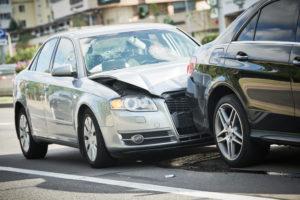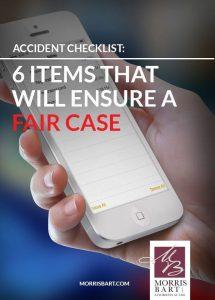
When you suffer serious injuries because of another party’s negligence – either corporate or personal – you may have a personal injury case. A personal injury case is the legal dispute that arises when you suffer harm due to someone else’s actions, usually as a result of carelessness or negligence on the part of the liable party.
To determine whether you have grounds for a personal injury claim, a lawyer will ask several critical questions. You should be ready to explain who caused your injuries, what act of negligence that party committed, and what injuries you sustained as a result of that negligence.
What does a Personal Injury Case Include?
Suffering serious injuries can prove truly daunting for anyone. Not only do you have high medical bills and an array of medical treatments to deal with, but you may also find yourself struggling to deal with the limitations posed by those injuries. A personal injury claim can help you pursue compensation for those injuries, which may provide you with the funds you need to cover your losses. You may be able to recover money for the cost of medical bills, make up for your lost wages, and take care of rebuilding your life in the aftermath of severe injuries.
Personal injury claims can occur as a result of a large number of potential injury types, including:
- Auto accidents
- Slip and fall accidents
- Premises liability accidents
- Construction accidents
- Product liability accidents
Any time someone else’s negligence causes serious injury, you may have grounds for a claim. A personal injury case will contain several critical elements.
Whose Negligence Caused Your Injuries?
In order to determine whether you have grounds for a personal injury claim, and who you have grounds for a claim against, a lawyer will start with a look at whose negligence caused your injuries.
In a car accident, for example, the liable party might be the other driver involved in the accident: a driver who chose to text and drive, for example, or one who ignored the rules of the road, including speeding or running red lights. In a slip and fall accident, the liable party might be the property owner who failed to properly maintain that property, leaving it unsafe for any visitors.
The liable party matters in personal injury cases because the party that bears liability for the accident can determine everything from how much compensation you can recover, usually through that individual or entity’s insurance policy, to what steps you need to take to file a claim.
How did the Liable Party’s Negligence Cause Your Accident?
To establish grounds for a personal injury claim, you will need to show that the negligent party committed some act that led to your accident. Sometimes, you can show an obvious act of negligence: a driver that swerved into your lane of traffic or rear-ended you at a red light, or a property owner who failed to take care of basic maintenance on the property, often for a long period of time.
However, you may need a more in-depth investigation to help you establish exactly how the accident took place. A lawyer can look further into the accident and what may have contributed to it.
For example, if you suffered a trip and fall due to a cord spread across the path, you may discover that a vendor ran that cord without securing it properly, which could leave the vendor liable for the accident. On the other hand, if the facility had a policy in place that allowed the vendor to run those cords freely, with no labels or warnings, the facility owner might also share liability for the incident. Working with a lawyer can make it much easier to establish those details and ensure that you can move forward with a personal injury case against the party that caused your injuries.
What Injuries did You Sustain?
The most important factor in many personal injury cases is the injuries that you sustained. In order to have a personal injury case, you must have some type of injury or damage because of the accident.
Suppose, for example, that you tripped over the cord in the example above. Your foot caught, but you quickly righted your balance, and you did not take a tumble; or, even if you hit the ground, you did not sustain any injuries that required medical attention. As a result, you might not have grounds to move forward with a personal injury claim, though you might need to point out the risk to the party that caused your accident.
Likewise, what happens if you notice another driver driving while distracted? You might avoid that driver on the road or even swerve out of the way to avoid a collision. Since you did not have an accident, however, you likely do not have grounds for a personal injury claim.
On the other hand, if you do have injuries from your accident, a lawyer can help add up the financial losses you have faced due to your accident. This will give you a better idea of how much compensation you might deserve for your injuries.
For a free legal consultation, call (800) 537-8185
What Compensation Gets Included in a Personal Injury Claim?
When you have a personal injury claim, you can include compensation for both financial and non-financial losses you may have sustained due to the accident. Most of the time, a personal injury claim will include compensation for:
- Your medical costs directly related to the accident
- Your lost wages, if you had to miss work because of the accident
- Any other financial losses (including property damage) related directly to the accident
- Pain and suffering, which a lawyer can help you calculate
Working with a lawyer offers you the best chance of securing the compensation you deserve following a serious accident of any type.
Do You Need a Personal Injury Lawyer?
If you suffered injuries in an accident due to another party’s negligence, you need a personal injury lawyer to help you better understand your rights and navigate the road to compensation. Contact Morris Bart today to learn more about your legal rights.
Questions?Call (800) 537-8185
to find a Morris Bart office near you.




